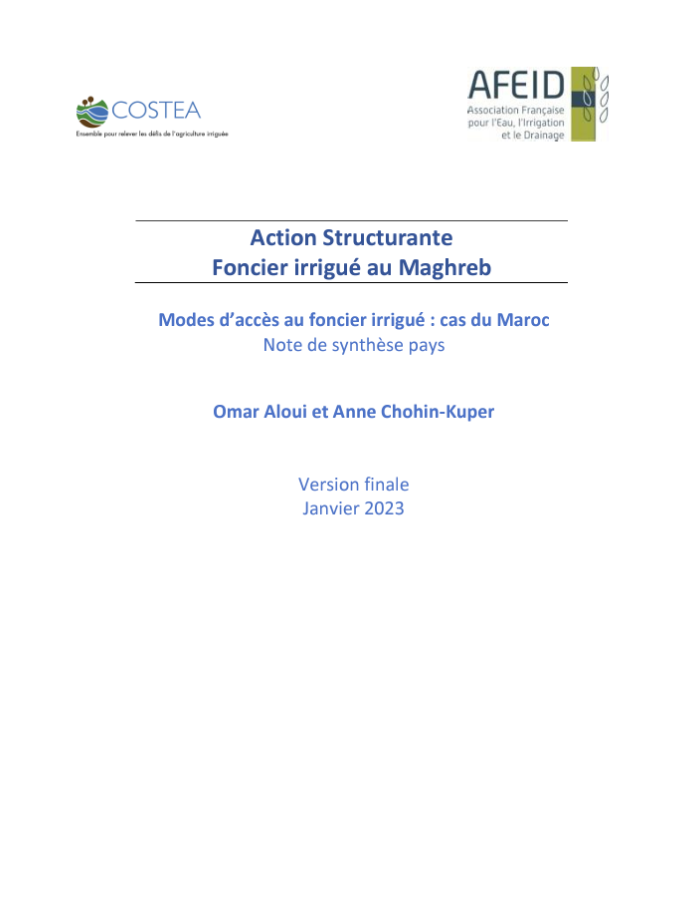Demographic, food security and climate change issues have been at the heart of discussions since the end of the 2000s, repositioning irrigation as a subject of interest for countries in the South. However, the findings of past failures and poor performance linked to a change in the context (social, environmental, climatic and technical) have led to a renewal of the way of thinking about irrigation.
It is in this context that our COSTEA Agricultural Water Scientific and Technical Committee project was created in 2013 by AFD (French Development Agency), the project's funder, and AFEID (French Association for Water, Irrigation and Drainage), the project owner, in order to support the growing demand of southern states in their reinvestment in irrigation
- 1st phase from 2013 to 2017: budget 1.2M euros
- 2nd phase from 2017 to 2022: budget €5M
- The year 2023 is a key period to bridge the gap between the end of the 2nd phase and the beginning of the 3rd phase, which will begin in January 2024
Members:
Resources
Displaying 1 - 2 of 2Hybridation des modes d’accès à la terre et à l’eau au Maghreb
Les études et recherches récentes sur l’accès au foncier irrigué au Maghreb font référence à la privatisation des terres, à l’individualisation des droits ou encore à l’accaparement ou la concentration foncière. Les terminologies multiples utilisées pour qualifier ces évolutions montrent la diversité des dynamiques productives qui peuvent être observées sur ces terres et des processus à travers lesquels les droits sur ces terres et leur transfert évoluent. Ces processus sont souvent insuffisamment explicités.
Modes d’accès au foncier irrigué : cas du Maroc Note de synthèse pays
Au Maroc, les politiques foncières post indépendance de 1956 ont abouti dans la zone occupée par la France à la mise sous tutelle d’une partie du foncier récupéré de la colonisation officielle et privée (DPE), au maintien du régime des terres collectives codifié dès 1919 par les autorités coloniales et au transfert des grandes propriétés immatriculées à des acteurs nationaux. Dans la zone sous protectorat espagnol, la colonisation des terres agricoles a pris des formes différentes1.



